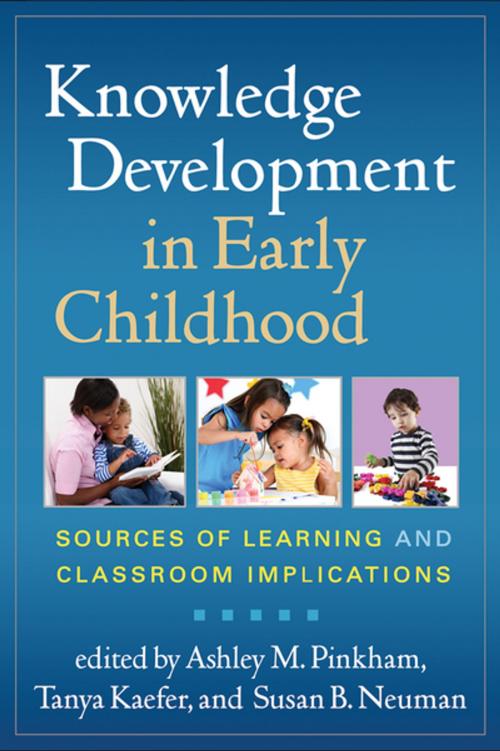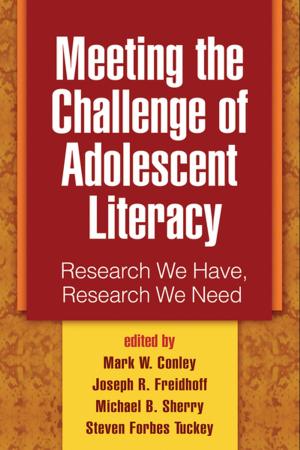Knowledge Development in Early Childhood
Sources of Learning and Classroom Implications
Nonfiction, Reference & Language, Language Arts, Literacy, Education & Teaching, Preschool & Kindergarten, Health & Well Being, Psychology, Child & Adolescent, Child Development| Author: | ISBN: | 9781462505043 | |
| Publisher: | Guilford Publications | Publication: | June 15, 2012 |
| Imprint: | The Guilford Press | Language: | English |
| Author: | |
| ISBN: | 9781462505043 |
| Publisher: | Guilford Publications |
| Publication: | June 15, 2012 |
| Imprint: | The Guilford Press |
| Language: | English |
Synthesizing cutting-edge research from multiple disciplines, this book explores how young children acquire knowledge in the "real world" and describes practical applications for early childhood classrooms. The breadth and depth of a child's knowledge base are important predictors of later literacy development and academic achievement. Leading scholars describe the processes by which preschoolers and primary-grade students acquire knowledge through firsthand experiences, play, interactions with parents and teachers, storybooks, and a range of media. Chapters on exemplary instructional strategies vividly show what teachers can do to build children's content knowledge while also promoting core literacy skills.
Synthesizing cutting-edge research from multiple disciplines, this book explores how young children acquire knowledge in the "real world" and describes practical applications for early childhood classrooms. The breadth and depth of a child's knowledge base are important predictors of later literacy development and academic achievement. Leading scholars describe the processes by which preschoolers and primary-grade students acquire knowledge through firsthand experiences, play, interactions with parents and teachers, storybooks, and a range of media. Chapters on exemplary instructional strategies vividly show what teachers can do to build children's content knowledge while also promoting core literacy skills.















